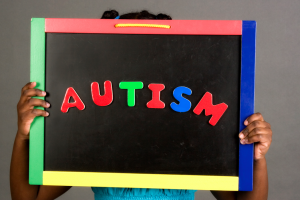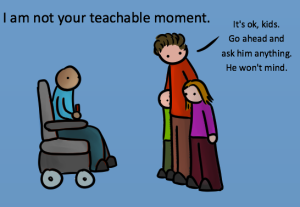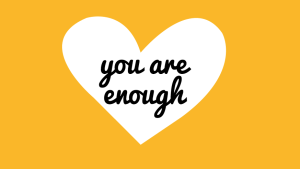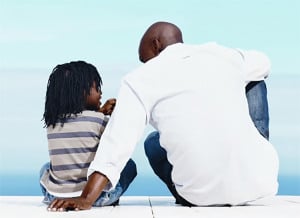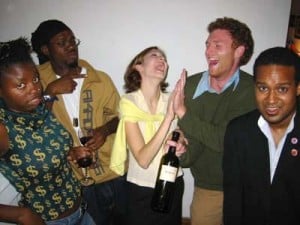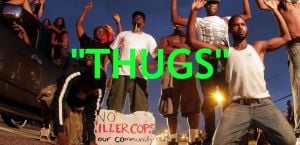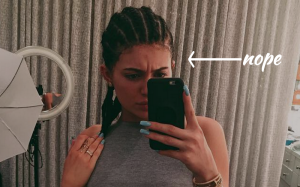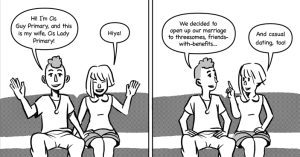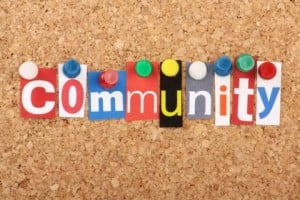
Source: Bluewolf
A lot of folks struggle with responding to sexual assault.
On an individual level, it can be hard to navigate the experience of a survivor disclosing their experience. And because of that, failure often happens at the institutional and community levels.
Those failures then perpetuate the individual struggle, thus fueling a cycle that makes it hard – and even dangerous – for survivors to speak out.
That’s a huge problem.
Ending sexual violence means creating survivor-centered responses, and those responses have to be survivor-centered across communities.
Ending sexual violence involves an “all for one, one for all” attitude toward rape culture. Sexual violence is not a special interest issue that affects a few people. Sexual violence is a social justice issue that affects everyone.
We all take part in rape culture and are affected by rape culture. And we can (and should) all be part of the solution.
We cannot be passive bystanders, and we need to make our voices heard in the fight to end sexual violence – no matter what our direct experience with the epidemic.
To build communities that can end rape, we need communities that are responsive to survivors. For communities to respond appropriately to survivors, we need communities that put their needs first.
Models of collective action build supportive and safe communities for survivors. When survivors know that they have their community’s support, they will feel safer seeking out help and other resources after their experience – and will be more likely to share their story and fully allow themselves to heal.
Most importantly, a community mobilized to end rape culture listens to and believes survivors – thus making them central to the challenge to end sexual violence. Victim-blaming, slut-shaming, and other justifications for rape are incongruent with rape-free societies.
So, how can communities do right by survivors?
1. Ensure Their Justice
When communities fail to stand by survivors, justice is lost on an individual and collective level.
In Washington, DC, a coalition came together and passed SAVRAA – the Sexual Assault Victims Rights Amendment Act – which improves the police department’s handling of sexual assault cases, bringing survivors closer to justice and removing the inherent risks of reporting from the picture.
In many communities, survivors who report their assault are re-victimized by the justice system and the procedure necessary to take their case to trial or even to seek out resources, such as rape kits and therapy.
The ignorance of community members, including police officers, school administrators, and employers, to issues of sexual violence and harassment foster environments where exploitative, threatening, and violent behavior occur without notice.
Not every survivor wants to report their rape – and that’s okay. But when they do, and are treated unfairly or re-victimized, they lose that choice and chance to pursue justice.
SAVRAA’s impact will undoubtedly echo outward: As more and more cases are reported, more official resources and action will be devoted to this movement. And as more survivors find justice, more will find the power to come forward.
Communities that hold the perpetrators of violence accountable and bring justice to survivors are communities where sexual violence will be less normalized, accepted, and tolerated – as are communities where the reporting process for survivors is as simple and efficient as possible.
2. Transformative Justice
But not all justice comes from the criminal justice system,
“Restorative Justice” and “Transformative Justice” models focus on what communities can do to support survivors, hold perpetrators accountable, and build communities where sexual violence is not tolerated.
To seek to shift the entire culture and educate everyone in hopes of creating a new dynamic of interpersonal interaction is ultimately the only way to eliminate the threats of rape, sexual assault, and sexual harassment for everyone, everywhere.
Generation Five, an organization that advocates for “Transformative Justice” as an end to child sexual abuse, defines it as a “liberatory approach to violence” that is “mutually beneficial.”
A culture in which violence is punished with violence, in the eyes of G5, is a culture where violence will never cease to exist.
By focusing on creating a culture that doesn’t foster violence – even as a form of punishment – we create communities where survivors know that their experiences with violence will be taken seriously and handled with care. Those are safe spaces for survivors.
Although our instinct may be to seek revenge or enact punishment on those who commit acts of violence – acts which, ultimately, make us all feel threatened and unsafe – it’s important to remember that violence begets violence.
Building a world free from sexual violence requires building a world where our tendency is not toward revenge, but toward healing.
Real justice comes in finding clarity, inner peace, and forgiveness – especially in a society where many perpetrators of rape do not find themselves in the hands of the justice system.
When communities have the tools to hold perpetrators accountable and support survivors, they will be better equipped to address the root causes of sexual violence.
3. Public Healing
Justice also comes in allowing survivors to heal – and heal publicly.
The Monument Quilt, for example, creates a public healing space.
The Quilt, modeled after the AIDS Quilt, allows survivors and allies in the fight to end sexual violence to tell their stories on oversize quilt squares, which are then displayed in public space.
Ultimately, the squares will be sewn together to create a huge monument to survivors of sexual assault – a sizeable, but currently underserved and largely invisible segment of our population.
To walk, sit, and survive alongside the squares of the quilt is to acknowledge sexual violence and allow the experiences of others to resonate within you. For survivors, being heard and believed can be a huge act of healing; for others, having simply recorded their experience or passed on a message of strength is pivotal.
FORCE is currently raising money to take the quilt across the country to ten cities in order to collect more squares and create more healing space.
To honor the space is to honor those stories, and to honor those stories is to honor the act of healing – at all stages.
FORCE’s work is necessary in every city because survivors live in every city, and every country, and everywhere. By shaping various and widespread communities to become more supportive of survivors and carve out more space, time, and resources for survivor healing, they are laying the framework for a culture shift around the country.
The impact that community action can have on individual lives is monumental.
Our communities shape who we are. We learn from our neighbors, friends, and loved ones every day. Inevitably, we become products of our environments and we’re affected deeply by how we see those around us acting, interacting, and living.
Survivor-supportive communities are spaces where anyone who has experienced sexual violence feels like they can tell the truth, and share their story, whenever they need to – and they are spaces where they don’t fear that the reaction will be victim-blaming rape apologism.
Communities that make it clear that survivors are supported and perpetrators of violence are not affirmed are communities where sexual violence will be minimal, and survivors will know someone’s got their back when they need it most.
***
Imagine, very quickly, a community where survivors feel safe – where their need to heal is respected, understood, and accommodated; where folks all play their own part in speaking up and out about rape culture and ending violence; where the justice system, the community culture, and the institutions that shape individual experiences – including schools, workplaces, and other shared space – are places where sexual harassment, violent language, and coercive behavior aren’t tolerated.
Imagine, very quickly, a community where violence is rare – and considered important.
To build those communities, we need to find ways to engage our neighbors, friends, and loved ones in this movement.
[do_widget id=”text-101″]
Want to discuss this further? Login to our online forum and start a post! If you’re not already registered as a forum user, please register first here.
Carmen Rios is a writer and activist from Washington, DC who has been working under-the-table and professionally in feminism since 2009. She recently began volunteering with FORCE. You can follow her on Twitter @carmenriosss.
Search our 3000+ articles!
Read our articles about:
Our online racial justice training
Used by hundreds of universities, non-profits, and businesses.
Click to learn more





